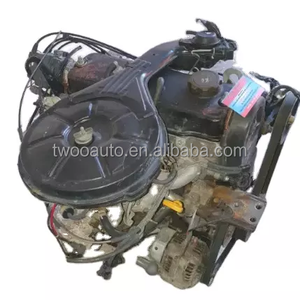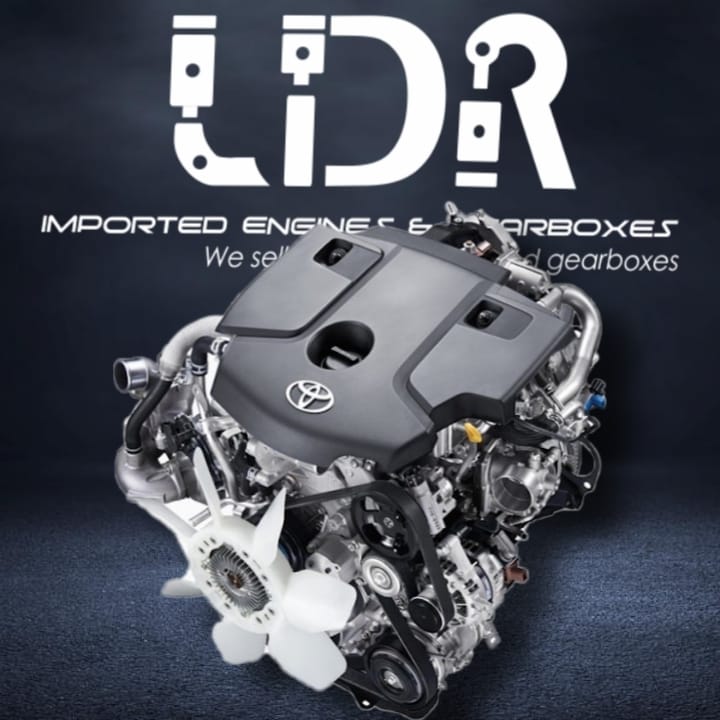Engine Purchasing Professional Tips on Choosing the Right Engine for Your Details Demands
Picking the right engine for your details requirements includes a complicated interplay of factors that go beyond mere horsepower figures. From power result to sustain performance, the decision-making procedure can be discouraging. Recognizing the subtleties of engine kinds, dimensions, and their compatibility with your automobile is vital. There are professional suggestions that can help browse this surface with confidence. By delving into the ins and outs of power versus effectiveness, examining fuel ratings, and budgeting for lasting costs, one can genuinely optimize their engine selection.
Power Vs. Effectiveness: Finding the Balance

When choosing an engine, it is crucial to strike an equilibrium in between power and effectiveness to meet your specific demands successfully. Power refers to the engine's ability to generate energy for propulsion, figuring out factors like acceleration, hauling ability, and overall performance (Toyota Tazz Engine For Sale). On the various other hand, efficiency connects to just how well the engine utilizes gas to create power, impacting elements such as fuel economic situation and environmental kindness
Accomplishing the right equilibrium between power and performance is vital due to the fact that an engine that is also powerful may eat extreme gas, causing higher operating prices and unnecessary pressure on the environment. Alternatively, an engine that prioritizes effectiveness over power might cause sluggish performance, particularly sought after circumstances like hauling hefty loads or driving uphill.
To make an educated decision, think about elements such as your regular driving conditions, the designated use the car, and your individual choices. By assessing your demands and top priorities, you can select an engine that strikes the best equilibrium in between power and performance, guaranteeing optimum efficiency while lessening ecological influence and operating expense.
Recognizing Engine Size and Type

Furthermore, engine kind plays an important role in identifying the performance qualities of an engine. Common engine kinds include inline engines, V engines, and rotating engines, each with its one-of-a-kind benefits and downsides. The engine kind impacts elements such as the engine's dimension, weight circulation, and power delivery. Recognizing the interaction in between engine dimension and type is vital in picking an engine that lines up with your particular needs and priorities, whether it be power, efficiency, or an equilibrium of both.
Consider Your Automobile's Demands
Considering your vehicle's needs is an essential action in the engine choice process to make sure optimal efficiency and functionality. It is important to examine factors such as the meant use the automobile, its weight, towing capability, and fuel effectiveness needs. For instance, if you are looking for an engine for a durable vehicle that will be made use of for towing, you will need an effective engine with high torque capabilities. On the other hand, if you are choosing an engine for a portable vehicle mostly made use of for city commuting, fuel performance might be a more important variable to think about.

Evaluating Fuel Performance Rankings
Analyzing gas performance rankings is an important element of choosing the best engine for your car, making sure expense savings and environmental sustainability. Fuel efficiency ratings, generally measured in miles per gallon learn the facts here now (MPG) for gasoline engines or kilowatt-hours per 100 miles (kWh/100 miles) for electric engines, show just how much an automobile can travel on a particular amount of fuel or electrical power. Greater MPG or reduced kWh/100 miles values represent more efficient engines, converting to lowered fuel costs and reduced carbon exhausts.
In addition, compare various engine options within the exact same lorry class to recognize the most economical option. Factors such as engine size, weight, the rules of aerodynamics, and hybrid or electric capacities can all influence fuel efficiency.
Budgeting for Long-Term Prices
Tactically intending for lasting expenditures is imperative when selecting an engine, guaranteeing monetary sustainability over the lorry's life-span. While the first acquisition rate of an engine is a significant factor, it is essential to think about the long-lasting expenses associated with maintenance, repair work, and fuel consumption.
Furthermore, looking into the accessibility and price of replacement components for the picked engine is crucial in spending plan planning. By carefully budgeting for these long-lasting expenditures and factoring them into the decision-making procedure, people can choose an engine that not just meets their instant requirements yet additionally continues to be economical throughout its lifespan.
Conclusion
In verdict, selecting the ideal engine for your specific requirements needs stabilizing power and effectiveness, recognizing engine size Resources and type, considering your lorry's requirements, assessing gas performance ratings, and budgeting for long-lasting expenses. By meticulously considering these aspects, you can make certain that you choose an engine that meets your requirements and these details supplies ideal efficiency for your lorry.
To further fine-tune the choice procedure of an engine that strikes the optimum equilibrium in between power and efficiency, it is crucial to delve into the complexities of comprehending engine size and type. Engine size refers to the overall volume of air and fuel that can be pushed with the engine cylinders. Typical engine types include inline engines, V engines, and rotary engines, each with its special benefits and downsides. Recognizing the interplay between engine dimension and type is vital in selecting an engine that aligns with your details needs and priorities, whether it be power, efficiency, or a balance of both.
Fuel efficiency ratings, normally gauged in miles per gallon (MPG) for gasoline engines or kilowatt-hours per 100 miles (kWh/100 miles) for electric engines, indicate just how far a lorry can travel on a certain quantity of gas or electricity.